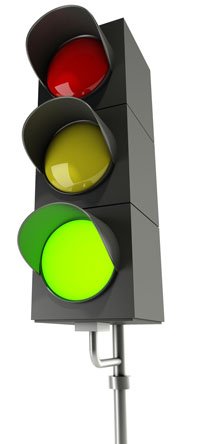Legal
Terms & Conditions
The School
The name of the driving school is: - The Learning Curve (Oxted). Proprietor Mr. R. A. Hart. Contact details are as shown above.
Test Bookings
The School will book the Practical test, for a mutually acceptable date. Test fees (which will be made to the DSA) must be paid to the School prior to the booking being made.
School Car for Practical Driving Test
If the test is booked as above, the Driving School car will be made available for the test period (and drive home), and for a 1½ hour lesson prior to the test. The normal cost for this will be a three and a half hour lesson fee.
Insurance Cover
School cars are comprehensively insured under Instructor policies, and the School has £3M Professional Indemnity Liability cover and £6M Public Liability cover.
Lesson Cancellation
A minimum of two working days notice is required for the cancellation or rescheduling a lesson.
Failure to give this notice will result in a charge for the FULL lesson.
Disclosure of Information
The pupil (you) agree that the driving examiner is free to disclose to your instructor, or any interested parties, any information relating to your performance, or conduct during the test, and any other matters that may occur during the test.
Complaints
In the event of a complaint, it should be brought to the attention of your driving instructor immediately.
See also the Code of Practice.
Code of Practice
Code of Practice for Approved Driving Instructors
Introduction
A driving instructor who gives lessons in a motor car in return for payment must be on the "Register of Approved Driving Instructors" (AD1s). To gain entry to the register prospective instructors need to pass a series of examinations administered by the Driving Standards Agency (DSA). People training to qualify as ADIs who have part completed the examinations can obtain from the Agency a licence to acquire practical experience, which is strictly limited to six months. Once fully qualified and on the register, ADIs are regularly tested by DSA to check their continued ability to give instruction to an acceptable standard.
The DSA and the driving instruction industry place great emphasis on professional standards and business ethics. The code of practice set out below has been agreed between DSA and the main bodies representing AD1s; it is a framework within which all instructors should operate.
Personal Conduct
The instructor will at all times behave in a professional manner towards clients.
Clients will be treated with respect and consideration.
The instructor will try to avoid physical contact with a client except in an emergency or in the normal course of greeting.
Whilst reserving the right to decide against giving tuition, the instructor will not act in any way which contravenes legislation on discrimination.
Business Dealings
The instructor will safeguard and account for any monies paid in advance by the client in respect of driving lessons, test fees or for any other purpose and will make the details available to the client on request.
The instructor on or before the first lesson will provide clients with a written/electronic copy of his/her terms of business to include
- legal identity of the school/instructor with full address and telephone number at which the instructor or his/her representative can be contacted
- the price and duration of lessons
- the price and conditions for use of a driving school car for the practical driving test
- the terms under which cancellation by either party may take place
- procedure for complaints.
The instructor should check a client's entitlement to drive the vehicle and his or her ability to read a number plate at the statutory distance on the first lesson. When presenting a client for the practical driving test the instructor will ensure that the client has all the necessary documentation to enable the client to take the test and that the vehicle is roadworthy.
Instructors will advise clients when to apply for their theory and practical driving tests, taking account of local waiting times and forecast of clients' potential for achieving the driving test pass standard. The instructor will not cancel or re-arrange a driving test without the client's agreement. In the event of the instructor's decision to withhold the use of the school car for the driving test, sufficient notice should be given to the client to avoid loss of the DSA test fee.
The instructor should at all times, to the best of his or her ability, endeavour to teach the client correct driving skills according to DSA’s recommended syllabus.
Advertising
The advertising of driving tuition shall be honest; claims made shall be capable of verification and comply with codes of practice set down by the Advertising Standards Authority.
Advertising that refers to clients' pass rates should not be open to misinterpretation and the basis on which the calculation is made should be made clear.
Conciliation
Complaints by clients should be made in the first instance to the driving instructor/school/contractor following the complaints procedure issued.
Failing agreement or settlement of a dispute, reference may be made to DSA’s Registrar of Approved Driving Instructors who will consider the matter and advise accordingly.
Should the registrar not be able to settle the dispute he or she may set up a panel with representatives from the ADI industry, to consider the matter further or to advise that the matter should be referred to the courts or other statutory body to be determined.
